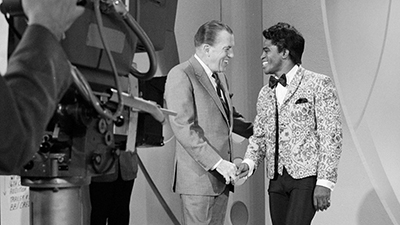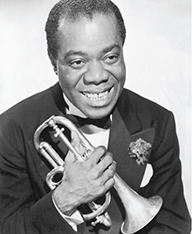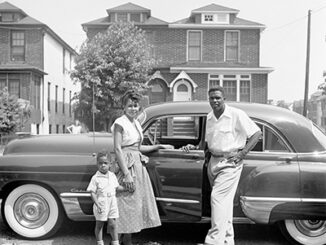
Legendary singer James Brown performed in front of a televised audience in Boston the day after Martin Luther King Jr. was assassinated. Brown is often given credit for preventing further riots with the performance.
Chester Arthur “Howlin’ Wolf” Burnett was one of the world’s most important blues singers, songwriters and musicians, influencing popular rock acts like the Rolling Stones and Eric Clapton. Howlin’ Wolf maintained financial success throughout his life, held a stable marriage and worked for charitable causes in his Chicago community.
Female science fiction author Octavia Butler was dyslexic. Despite her dis-order, she went on to win Hugo and Nebula awards for her writing, as well as a “genius” grant from the MacArthur Foundation.
When African American neurosurgeon Ben Carson was a child, his mother required him to read two library books a week and give her written reports, even though she was barely literate. She would then take the papers and pretend to carefully review them, placing a checkmark at the top of the page to show her approval. The assignments inspired Carson’s eventual love of reading and learning.
Politician, educator and Brooklyn native Shirley Chisholm survived three assassination attempts during her campaign for the 1972 Democratic nomination to the U.S. presidency.
Rap artist Chuck D graduated from Adelphi University, where he studied graphic design.
Dr. Mayme A. Clayton, a Los Angeles librarian and historian, amassed an extensive and valuable col-lection of Black Americana now found in a museum that houses an estimated 3.5 million items. The collection includes works from a wide range of luminaries, including Countee Cullen, Marcus Garvey, Zora Neale Hurston and Lena Horne.
Before lawyer Johnnie Cochran achieved nationwide fame for his role in the O.J. Simpson trial, actor Denzel Washington interviewed Cochran as part of his research for the award-winning film Philadelphia (1993).
Record sales from musician and singer Nat King Cole contributed so greatly to Capitol Records’ success during the 1950s that its headquarters became known as “the house that Nat built.”
The Saint John Coltrane African Orthodox Church in San Francisco, California, uses jazz musician John Coltrane’s music and philosophy as sources for religious discovery.
Paul Cuffee, a philanthropist, ship captain and devout Quaker who supported a return to Africa for Black citizens, transported 38 free African Americans to Sierra Leone in 1815. He also founded one of the first American integrated schools in 1797.
Tice Davids, a runaway enslaved person from Kentucky, may have been the inspiration for the first usage of the term “Underground Railroad,” though the origins of the term are shrouded in mystery. According to reports, after Davids swam across the Ohio River, his “owner” was unable to find him. He allegedly told the local paper that if Davids had escaped, he must have traveled on “an underground railroad.” Davids is thought to have made his way to Ripley, Ohio.
At a time when universities did not typically offer financial assistance to Black athletes, African American football star Ernie Davis was offered more than 50 scholarships.
Thomas Andrew Dorsey, considered the “Father of Gospel Music,” was known for his fusion of sacred words and secular rhythms. His most famous composition, “Take My Hand, Precious Lord,” was recorded by the likes of Elvis Presley and Mahalia Jackson.




Be the first to comment